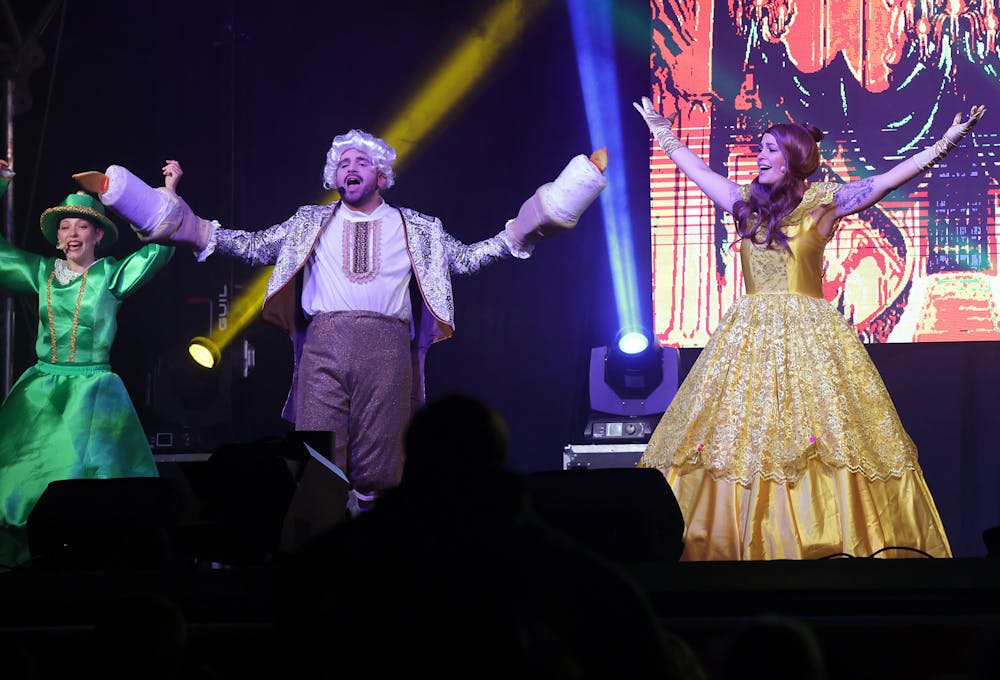By Lake DiStefano
Staff Writer
It can be argued that one’s taste in media is a sacred thing. Among the many genres and mediums of storytelling, what a person happens to like is simply something you don’t interrogate or argue against.
Why people like what they like, while interesting, ultimately does little to contribute to the discourse surrounding the perceived quality of a work. It doesn’t get anyone anywhere to point fingers and claim that someone misunderstands a piece of art simply on the basis that they do not like it.
In recent years, I’ve felt a growing annoyance at a particular type of critique: the crowd who claims to hate musicals. Now, I’ll concede that there are certainly some who genuinely hate musicals. The act of singing annoys them, and any occurrence of it instantly kills their enjoyment. Again, one’s media preferences are just one of those things you don’t question.
Despite this, the majority of those voices, those who insist that singing to convey a story is inherently awful, contain a very interesting hypocrisy.
What interests me about the holistic hate of musicals is how these people don’t understand musicals to begin with, and not in the sense that they don't get the point of them. For example, a common critique is that musicals take too long to get to the point of their story. This is a valid criticism. What I’m talking about is more related to what detractors even consider a musical to be.
In many recent conversations, where the topic of musicals is brought up and discussed, I notice there seems to be a very deliberate and narrow view of what a musical actually is: that the entirety of the genre exists within the slew of shows currently playing on Broadway — of which there are many reasons, financial or otherwise, not to love.
People will usually take this time to express why they dislike the act of traveling and purchasing expensive tickets just to watch a stage production. In their minds, the experience, the commute, the money — it is all a part of what a musical is. To them, the genre is colored by this very spontaneous and random series of circumstances.
When gently probed, however, more often than not people will express joy over films like “La La Land” and “West Side Story.” Without fail, they will go on to clarify that they view those films as different. There’s always this subtle implication that, to them, those films aren’t fully musicals.
This is the crux of my confusion with this line of thinking. Musicals, the concept of them at least, are such a broad and diverse thing. They aren’t one defined experience, and claiming to hate the genre, based on a pretense of disliking Broadway productions, seems ill-informed to me.
Why are these beloved films considered exceptions to the rule, simply on the basis that they are musicals executed in a more commercial and palatable way? I’m left to wonder if there is a perceived level of credibility and authenticity forfeited simply by being good films even outside of their musical aspects.
I don’t consider myself to be an avid musical lover, far from it. I too have had moments where I’ve rolled my eyes at a musical number that seems to go on forever. There is, however, a difference between not preferring a genre, and denying outright that it has merit to it. Especially when there are many recent examples of musical films being enjoyed by a mainstream audience while still being, at their core, a cast singing to tell a story.
So maybe you do hate musicals. I wouldn’t question that in and of itself. However, there needs to be a push to view musicals more accurately, at least for the sake of avoiding the discourse surrounding this perennial debate.







